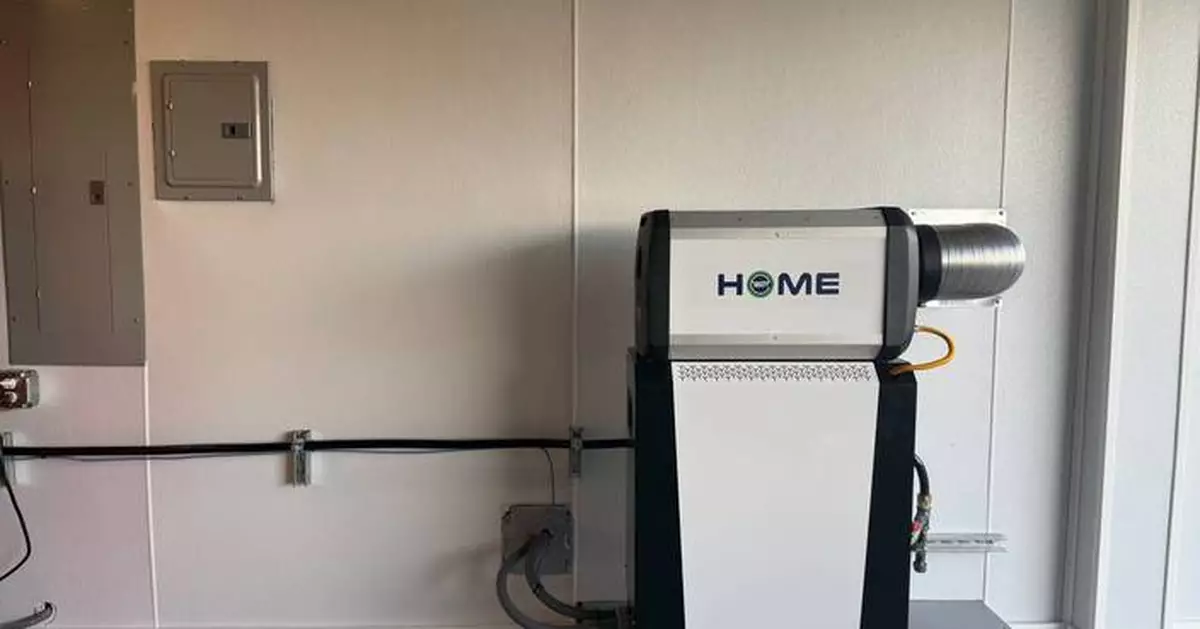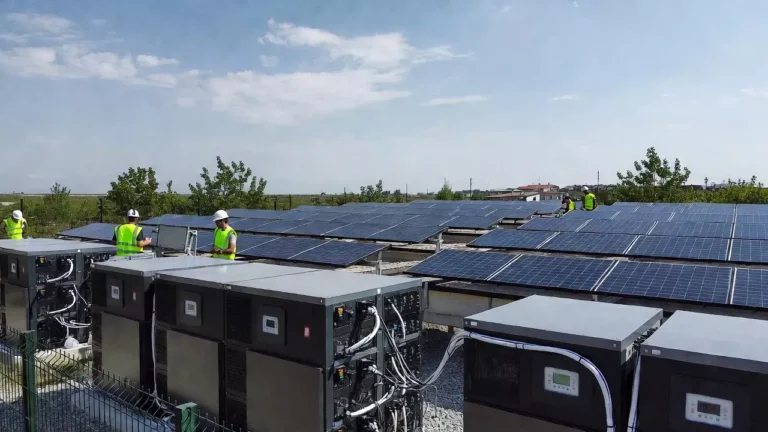
WATT Fuel Cell Launches Next-Generation Residential Energy System in Collaboration with Peoples Natural Gas
In a major step forward for residential energy innovation, WATT Fuel Cell Corporation, a leading developer of solid oxide fuel cell (SOFC) technologies, has completed the successful installation of its latest WATT HOME™ fuel cell system in Western Pennsylvania. This milestone was achieved in partnership with Essential Utilities, Inc., the parent company of Peoples Natural Gas, one of the largest natural gas distribution companies in the state.
The new installation is a key demonstration of how advanced clean energy technology can seamlessly integrate into the existing natural gas infrastructure to deliver resilient, efficient, and environmentally responsible electricity to homes. The WATT HOME system represents a significant evolution in residential energy technology, designed not just to supplement existing grid power but to stand as a reliable energy source even during unexpected power outages.
Fuel Cell Innovation Meets Local Energy Needs
The WATT HOME™ fuel cell system is built upon solid oxide fuel cell (SOFC) technology, which uses a highly efficient electrochemical process to convert natural gas directly into electricity. Unlike traditional generators, this process does not rely on combustion, making it a cleaner and quieter energy source. The system leverages the chemical energy stored in natural gas and transforms it into electric power through a silent, low-emission process with minimal moving parts, resulting in greater longevity and reduced maintenance requirements.
This capability makes the WATT HOME system a compelling option for both homeowners and utility companies seeking to address the twin challenges of power reliability and sustainability. While the system utilizes natural gas—a fossil fuel—it does so at high efficiency and with lower emissions, and it’s compatible with renewable natural gas (RNG), hydrogen, and future low-carbon fuels. The design anticipates the energy landscape’s shift toward decarbonization.
Why It Matters: The Growing Urgency for Reliable Backup Power
The installation comes at a time when the U.S. electric grid is under unprecedented pressure, largely due to the increasing frequency and intensity of extreme weather events, along with the gradual retirement of traditional baseload power generation plants such as coal and nuclear. According to data from the U.S. Energy Information Administration, the average U.S. household experiences about 5.5 hours of power interruption per year. In some regions, this number is significantly higher, particularly in areas prone to hurricanes, winter storms, or wildfires.
For residents, each power outage can mean discomfort, loss of food, home safety concerns, and costly damages—especially for households that depend on electricity for critical health-related equipment. For the grid operators, it’s a call to diversify energy sources and build resilience.
WATT HOME addresses these challenges head-on by offering a reliable, always-on source of power that operates independently of the grid. When grid power fails, the system can instantly provide power to the home without the noise, pollution, or logistical issues that come with gasoline or diesel backup generators. It quietly ensures continuity in lighting, heating, refrigeration, and communications—some of the most vital components of daily life.
Executive Perspectives: Industry Leaders Weigh In
Caine Finnerty, CEO and Founder of WATT Fuel Cell, emphasized the system’s capacity to meet real-world demands in today’s changing energy environment. “The rising frequency and severity of power disruptions highlight the urgent need for resilient, efficient, and clean energy solutions,” said Finnerty. “When the power goes out, the WATT HOME system activates to ensure your electricity is working all the time.”
His remarks point to a broader conversation happening nationally—one that focuses on building energy resilience at the community and household level rather than relying solely on large-scale grid improvements, which are often expensive, slow to implement, and vulnerable to regional disruptions.
Peoples Natural Gas President Michael Huwar echoed that sentiment, highlighting the technology’s strategic fit with the region’s energy goals and natural resource advantages. “The partnership with WATT is the latest in a series of innovative concepts championed by Peoples to meet modern-day energy demands,” said Huwar. “The WATT HOME system’s groundbreaking technology has the potential to protect homeowners from volatility in power generation, offering a reliable, resilient, and sustainable energy solution that leverages our region’s abundant natural gas supply.”
Understanding the WATT HOME System: Features and Benefits
The WATT HOME fuel cell system offers a wide array of features that make it particularly appealing for homeowners looking for advanced yet practical energy solutions:
- Silent operation – Unlike internal combustion generators, the WATT HOME runs silently, eliminating noise pollution.
- Compact size – Its small footprint allows for easy installation even in dense urban settings or compact homes.
- Low emissions – The electrochemical process used to generate electricity releases far fewer pollutants than traditional generators.
- High efficiency – SOFCs can reach system efficiencies exceeding 50%, significantly outperforming conventional power generation methods.
- Remote monitoring and smart control – Users can manage the system through digital platforms, adjusting settings and monitoring performance in real time.
- Grid independence – It offers a level of autonomy that can serve both as a backup during outages and as a primary source in off-grid or hybrid applications.
A Roadmap for Broader Deployment
This initial installation is not just a one-off demonstration but a foundational step in a larger rollout program that could reshape how residential energy is delivered and consumed. Peoples Natural Gas plans to expand its pilot initiative with installations in several of the company’s regional field offices. These sites will serve as testing grounds to explore how the system performs in different environmental and operational conditions, including cold weather, urban and rural locations, and varying demand loads.
The data and insights gathered from these pilot projects will help establish a playbook for a broader, public-facing deployment in the near future. These insights will also inform potential regulatory adjustments and incentive structures needed to support wider adoption of distributed fuel cell technologies.
This pilot program aligns with Essential Utilities’ commitment to sustainability and innovation, as the company explores new technologies that enhance service reliability while meeting stricter environmental standards. Peoples, as part of Essential Utilities, continues to explore how natural gas infrastructure can play a constructive role in a lower-carbon energy future.
Fuel Cells in the Future Energy Mix
Fuel cells, particularly SOFCs, are increasingly seen as a crucial technology in the transition to a cleaner, more distributed energy system. Their flexibility in terms of fuel inputs, modular scalability, and low environmental impact makes them attractive not only in residential settings but also in commercial, industrial, and remote applications.
The WATT HOME system’s compatibility with renewable natural gas (RNG) and potentially green hydrogen adds to its appeal as a future-proof technology. As the supply of cleaner fuels grows, these systems can continue to operate efficiently while lowering carbon intensity. This adaptability ensures the technology remains relevant and beneficial well beyond today’s natural gas infrastructure.










